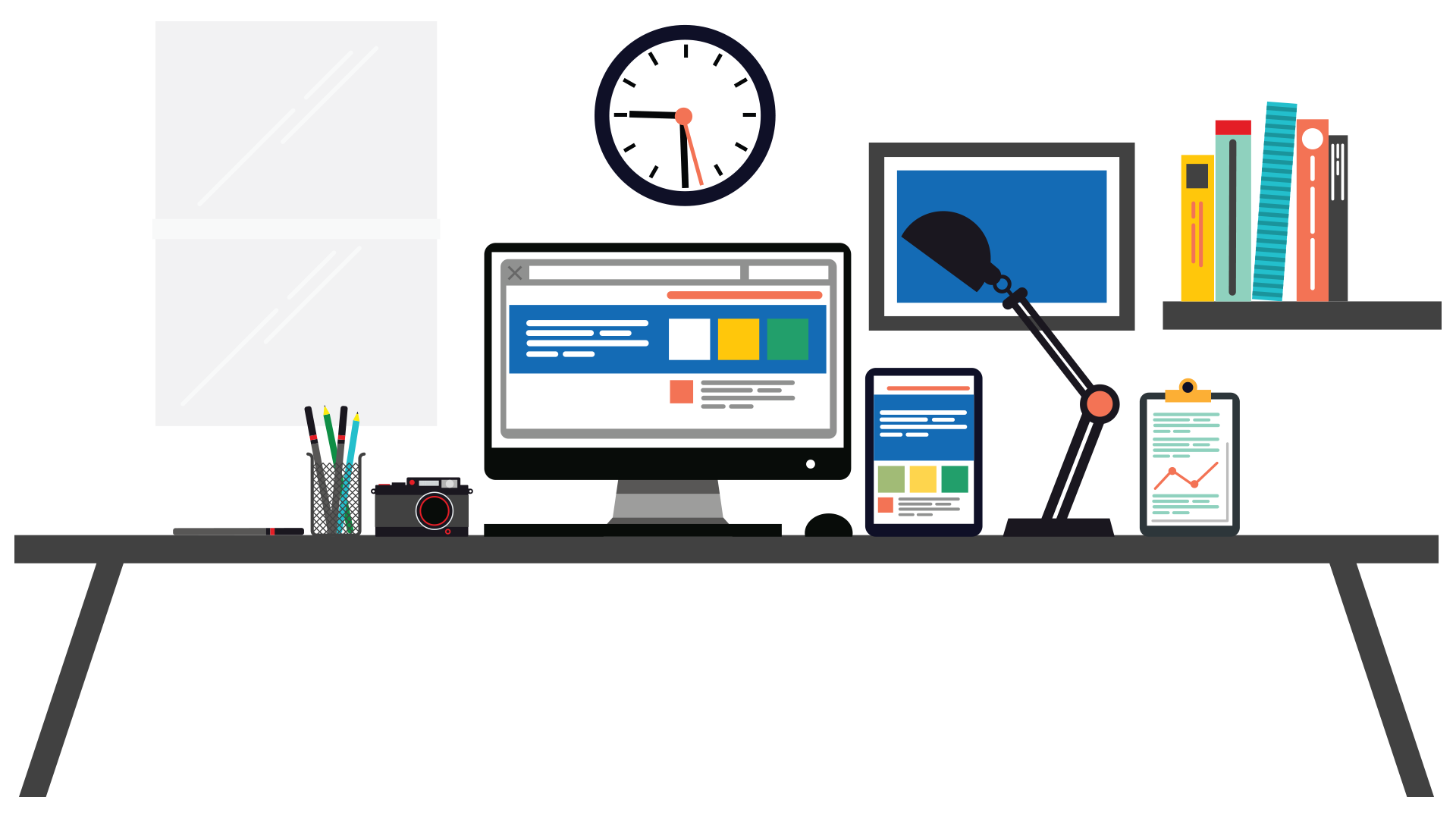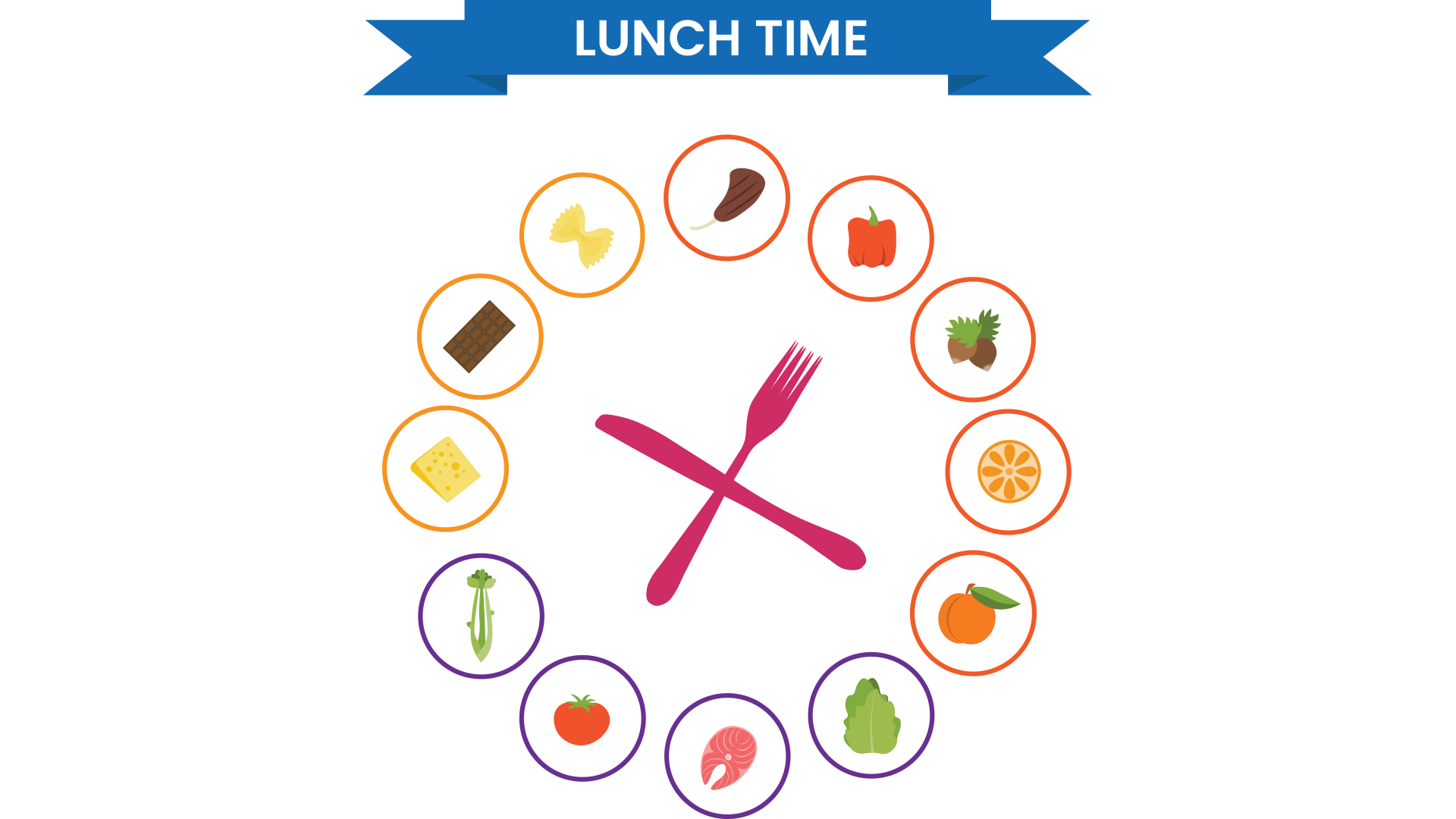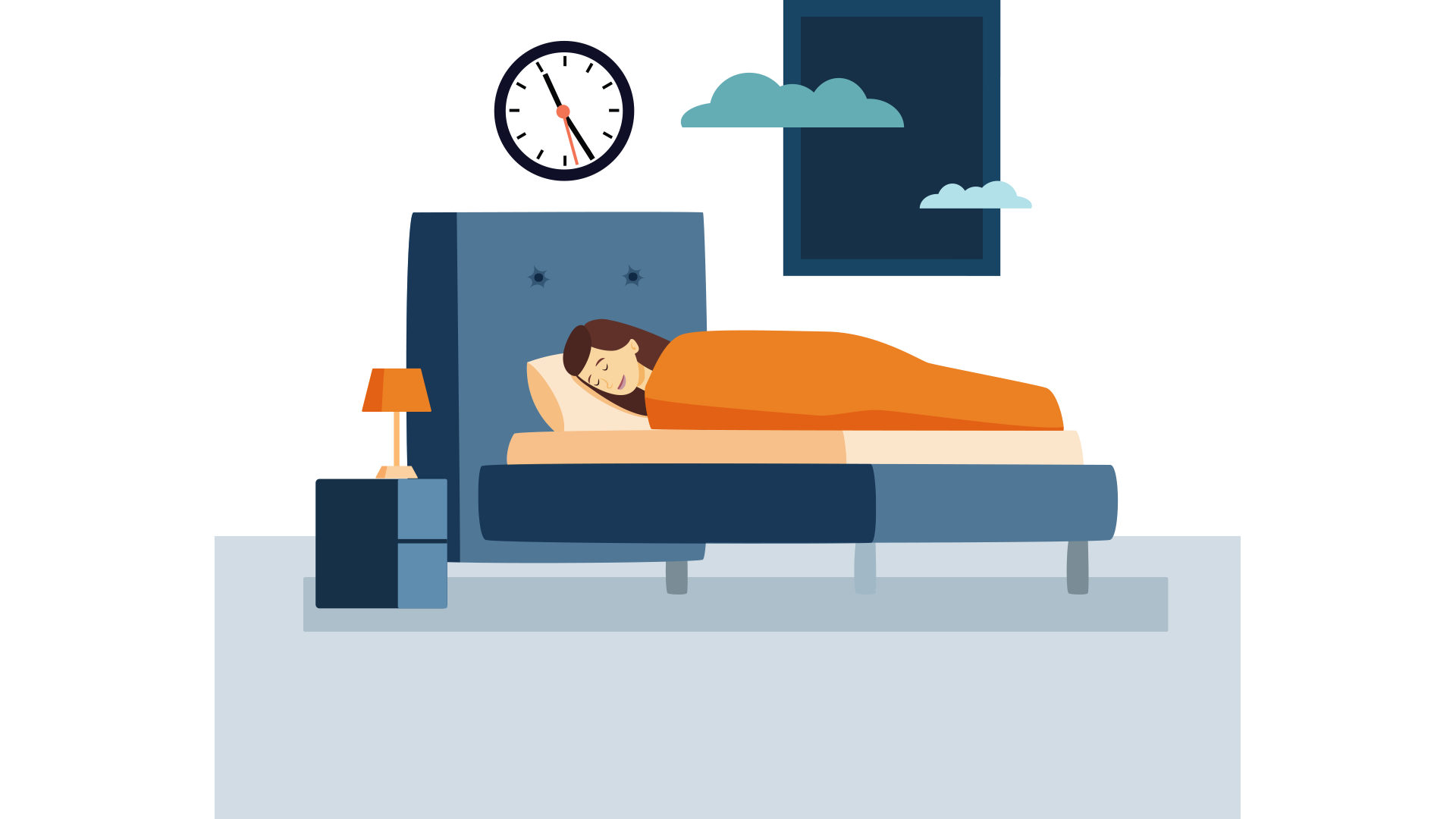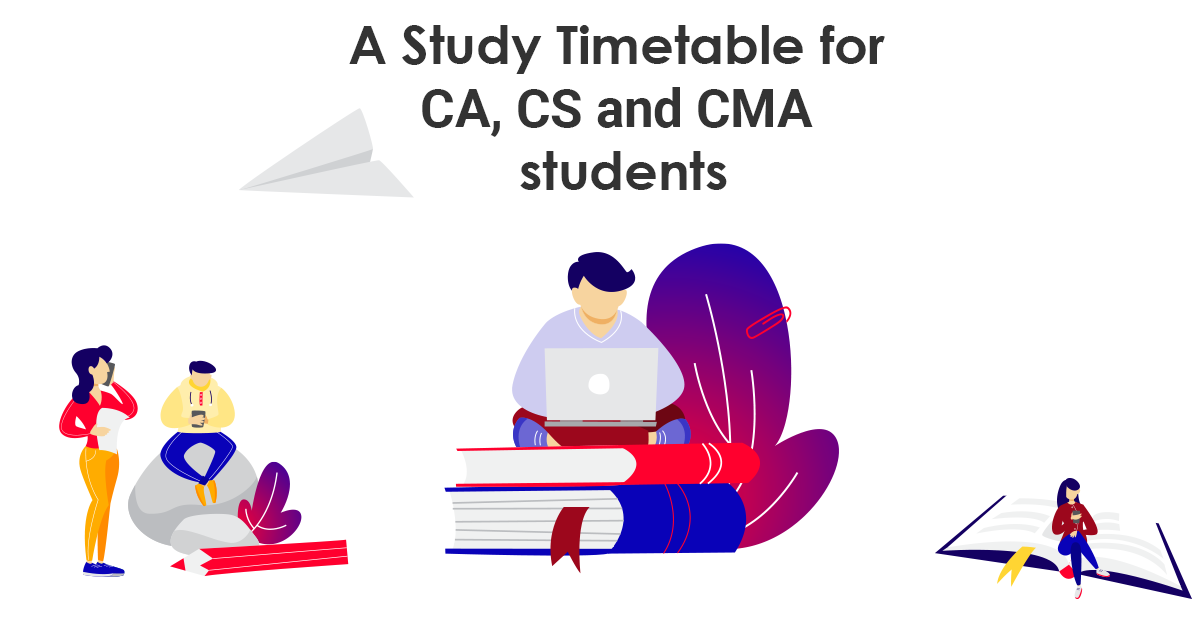So, you’ve gone through our post outlining how to pass the CA, CS or CMA exams.
Splendid.
But how do you come up with a timetable that keeps into account the latest in learning theory?
Well, it’s not that hard.
Let’s show you how.
Drawing up a Study Timetable
But before we begin, keep in mind that this timetable is flexible. That is, you might have to adjust your study times depending on what other commitments you have.
Ok, enough dilly-dallying, let’s get to it.
Wake Up!

7:00 a.m. to 7:05 a.m.
It’s time to wake up! Don’t put that alarm clock to snooze. Get up and get out of bed. Alright, you can snooze for five minutes or so. Not more than that!
Early Morning Routine
7:05 a.m. to 7: 20 a.m
Time to do your daily early morning routine. Brush your teeth. And other things. Don’t take a bath or shower. You can do that later.
Breakfast
7:20 a.m. to 7:50 a.m.
Time for breakfast. Eat a nice, healthy and nutritious meal. Also, interact with family.
Time for Walking
8:00 a.m. to 8: 15 a.m.
Go for a stroll around your area. Say hi to your neighbourhood aunties and uncles. Smile. It’s going to be a good day.
Meditation
8:15 a.m. to 8:30 a.m.
If you have meditated before, you could do more advanced meditation techniques. If you are a beginner or even otherwise, practice a mindfulness meditation routine. It will help you to concentrate and also to overcome exam fear.
Read Newspaper, Check Emails etc.
8:30 a.m. to 9:00 a.m.
Have some alone time. Read a newspaper or check email. Catch up on social media.
High Intensity Workout
9:00 to 9:15 a.m.
This is the time of the day where you do a high intensity 15 min workout. Get sweaty and get your heart pumping. This helps to circulate blood to your brain.
Shower and Stuff
9:15 a.m. to 9:30 a.m.
Take a quick shower during this period. You can now start your day in earnest!
Study Session 1

Finally, you get to your study session. Notice that you begin your study about 2-3 hours after you wake up. Why? Because according to science, that’s the part of the day when your brain is most active. This contradicts the advice given by some people who say that you should study right after you awake. That’s not right!
And the type of subjects you need to work on? Theoretical ones. By the way, we can break down the timings of the session even further.
9:30 a.m. to 10:00 a.m.
For the first 15 minutes, engage in retrieval practice. We talked about what that meant in the earlier post. Once you’ve done that, from about 9:45 a.m. to 10:00 a.m., go through and see how well you did. Keep in mind the things you got wrong and work on that a bit later. Then take a quick break of about 5 min. Get up and stretch a bit. Do some light exercise or something. Then get back to study.
10:05 a.m. to 11:05 a.m.
From about 10:05 a.m. to 11:05 a.m., go through one of our playlists. Specifically, the video lecture part. Engage in smart note taking strategies. Make sure that you understand as much as you can. Once the hour is up, again get up and stretch a bit. You may also want to take a quick snack. This break’s a bit a longer. 10 min break ftw!
And back to the grind …
11:15 a.m. to 12:15 p.m.
Go through the study notes and engage in smart note taking strategies (dual coding etc.). And again, take a five min stretch break after.
12:20 p.m. to 12:35 p.m.
At the end of most our playlists, we have a quick quiz. Go through that. Also, make up your own little quiz while studying and at the end answer the questions you have made up!
Remember that these timings are flexible. All depends on how fast you study and how much you’ve grasped. Ensure that at the start of the session, do some retrieval practice. And during the session, go through the lectures, the quizzes, and the study material. All the while getting up every hour for some 5 min stretching exercises. Also, set aside some time to grab a quick snack!
Optional Break Time 1
12: 35 p.m. to 12:50 p.m.
Now, if you’ve finished studying all the stuff in the playlist, you can take a break and do whatever you want. If there’s still material left to study from the session, and you are close to the exam date, go over that. Otherwise, break.
Lunch Time

12:50 p.m. to 1:30 p.m.
Have lunch during this time. Use this time to socialise with your family as well. Relax.
It’s Time For a Walk
1:30 p.m. to 1:45 p.m.
It’s a good idea to take a quick 15 min walk after lunch. It helps in digestion and you get to explore the world!
Power Nap
1:45 p.m. to 2:15 p.m.
According to research, it’s a good idea to take a quick 20 to 30 min nap a little bit after lunch. So, incorporate this into your schedule!
Study Session 2
2:15 p.m. to 5:20 p.m.
We don’t want to go into detail about the breakdown of this session. It’ll be redundant! Follow the same pattern as in study session 1. This time choose a different subject. A subject that’s practical in nature. Use the same strategies and techniques as outlined in session 1.
Optional Break
5:20 p.m. to 6:20 p.m.
Depending on how well your study is progressing, you can take an optional break. You can continue studying too if you want. Up to you …
Mandatory Break

6:20 p.m. to 7:20 p.m.
Now you HAVE to take a break. All work and no play makes Jack a dull boy as the saying goes. Applies to girls as well! So, stop worrying, and stop studying. Do whatever you want during this time. Facebooking, Whatsapping, anything.
Dinner Time
7:20 p.m. to 7:50 p.m.
Dinner with family. Enjoy your meal!
Walk after Dinner
7:50 p.m. to 8:05 p.m.
Again, stroll around your area for about 15 minutes. Say goodnight to your neighbourhood aunties and uncles.
Final Study Session

8:05 p.m. to 11:10 p.m.
This is the final study session of the day. Study a different subject from the previous two sessions. And this time choose a subject that’s both theoretical and practical.
Optional Meditation Session
11:10 p.m. to 11:25 p.m.
You can try your hand at a final meditation session to relax and prep for bed. If you don’t want to do this, go ahead and sleep.
Bed Time Routine and Sleep

11:25 p.m. to 7 a.m.
Get some sleep after your bed time routine!
Repeat
And repeat this cycle all through your study days. If you tally everything up, you’ve studied approximately between 8-10 hours a day. Not bad! Anyone should be able to follow this. And of course, depending on your schedule adjust the timetable. If you prefer to study later, adjust the timetable accordingly. Also, a bit closer to the exam dates, draw up a new timetable that includes going over and doing practice exams. The main thing to keep in mind is to set aside time for exercise, meditation and a few breaks. That’s it.
We hope you’ve found this sample timetable useful. If you have any questions about this post, ask us in the comment section below.



